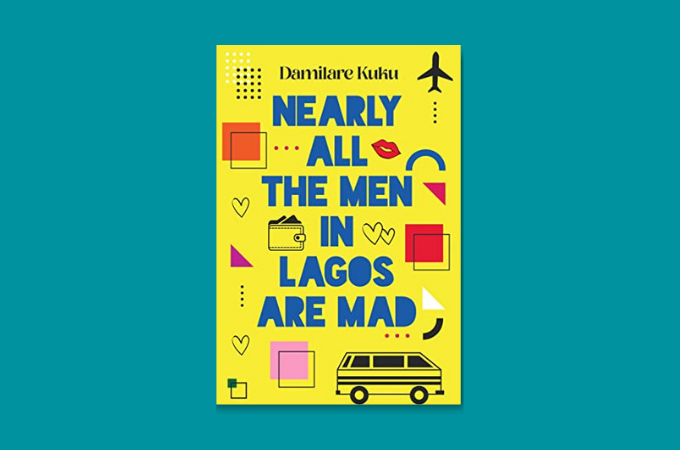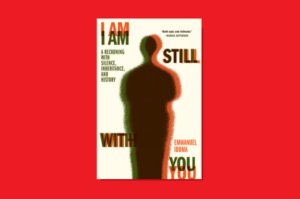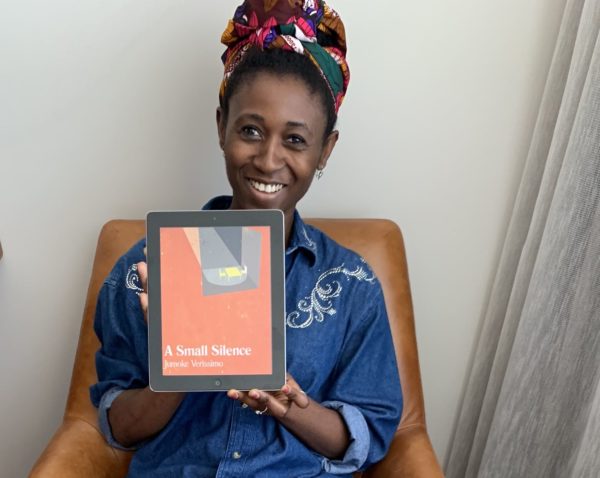
Lagos is a city of assortments, a concoction of the good, the bad, the mad, and the ugly. A boisterous city enlivened by the pulsating heartbeats of the eager millions hustling and bustling, waiting for their big breakthrough. It is a place where dreams are unfurled to bloom or diluted to a soppy mess by the dulled browns of cynicism.
It is in Lagos that a man with shrunken cheeks and a large forehead marked by many hours in the sun will trudge up to you, trying to convince you that he is a wealthy businessman who needs help clearing goods worth millions of dollars with the promise of a hefty compensation. You will look closely at him, noting his ratty suitcase and faded shirt, before moving carefully and hurriedly away.
It is this same Lagos that you will be cramped on a yellow bus with many sweaty bodies and pretend not to see the man seated by your left conspicuously squeezing Nairas in exchange for a black bottle from the man whose voice continues resounding in the bus, “Superman Special Drink! One dose only and you go perform wonders,” looking rather at the conductor as he yells profanities at a woman in the back who he insists is too fat to pay the fare of one seat. Lagos will teach you to be wary, cautious — trust no one, everyone is a suspect.
It is in Lagos that you will spend one night, cosily, in the arms of your fiancé and the next, alone and sobbing bitterly because your previously devoted fiancé’s wife accosted you. Hence, with a title such as Nearly all the Men in Lagos are Mad, Lagos babes will scramble to agree even before perusing the content.
Damilare Kuku’s debut novel, Nearly all the Men in Lagos are Mad, is a collection of twelve short stories, each describing the unique experiences of different women in their relations and interactions with men in Lagos against the famous city’s colourful backdrop. The title is conveniently catchy and duly relatable. Rightly, one of the assortments that come with the vivacious, fast-paced megacity is the potpourri of men and masculinity that it strategically dishes out. From gigolo to mummy’s boy, to gay men deceitfully using women as shields, to the peculiar ‘alpha male’ who, for some suspicious reason, loves to role play as a little girl during sex, to stereotypical energetic Lagos fine boy with a special interest in the city’s crackling nightlife, and all the way to the endless cheats, the title of the book is sufficiently justified.
Kuku does not limit the swooping endemic of madness in the city to only the native men of the city — or the country at large — as even the oyibo men (a household name for light-skinned foreign men) who, for different economic and social reasons, have meandered towards the lulling call howled by the bustling city seem to be mad, too. The novel provides an interesting supply of chuckles, shocks, and sighs. The stories are told using different narrative techniques, but the most laudable is the first person point of view as it foregrounds the intimate and conversational tone pervading the book and sets the mood for brilliant storytelling. Kuku’s work is not only remarkable in its accommodation of different intriguing stories, but by its candid language. The language used by all the characters is relatively simple and reasonably witty. The pleasant fact that it is flavoured with tasteful chunks of the Nigerian-English dialect is particularly noteworthy as it reinforces and enhances the relatability of each story and gives deep insight into the various characters’ personalities.
Buried, rather shallowly, under the wild and ridiculous stories in the book which firmly establish that nearly all the men in Lagos are mad, are the psychoaffective conditioning that impel their madness. Kuku attempts to address the medley of different socio-cultural and socio-economic structures supported by long-held norms — structures that are brazenly adorned by many of the ‘mad’ men in the book. Naturally, these are some of the things that regulate the experiences of many women in the novel. After a thorough delve into each peerless story in the book, the feminist tinge is unmistakable. In the third story, “The Anointed Wife,” Tade is a self-righteous pastor who, even in his perverted adultery, believes that he is “celebrating the lord.” His hypocrisy is championed by his wife’s total conciliation with his escapades and her perforated views on marriage. Arguably the same views that many African women have been drilled to uphold. Thus, when the scandal of her husband’s infidelity threatens to drown the castle of her picture-perfect family, she single-handedly resolves to steady the tide, afraid that the secrets packed in her castle of lies will be unearthed for the tumultuous ocean of public opinion to dissect.
Many of the stories told by Kuku through these women represent a certain kind of shrinking, reduction, that many women commonly endure in order to cohabit with the majority of men present at specific points in their lives. Another example of this is found in “International Relations,” where Shike Macaulay, a mature, financially stable woman tells the story of how she wound up with a pompous ‘traditionalist’ who audaciously spearheads the warped norms of an equally regressive society by his continuous dismissal and reduction of her success and her financial privileges. His retrograde ideals are seen to have severely clogged up his brain, barely creating room for even a modicum of common sense to thrive, thus resulting in his defiant refusal to enjoy the convenience of Shike’s car, suggesting, instead, that they resort to the ludicrously unsafe idea of flying a bike over the third mainland bridge. His decision may just indicate that his steadfast pursuit of traditionalism has been usurped by tradition itself, and traditionalism may just be the one doing the pursuing — suffice to say, traditionalism may be after his life. Literally. Ironically, this ‘alpha male’ has a questionable sexual kink of role-playing as a little girl. Madness, really.
The issue of infertility is a subject that has found home in modern African women’s literature. In her essay, “The Sex Lives of African Girls,” Taiye Selasi asserts that “in the peculiar hierarchy of African households, the only rung lower than the motherless child is the childless mother.” With words such as “barren” dominating the niche of infertility in society, the wrathful brunt of child-hungry Africans is faced solely by women. Hence, in a childless marriage, the fault automatically and unprovoked rests on the woman. However, in recent times, women have begun responding and reacting to this deep-rooted biased claim.
In literary works such Ayobami Adebayo’s Stay with Me, Lola Shoneyin’s The Secret Lives of Baba Segi’s Wives, Asare Konadu’s A Woman in Her Prime, and Buchi Emecheta’s The Joys of Motherhood, significant truths of the politics of infertility in the African space are exposed. Because there is no room for childlessness in an African home, the desperation of many women in childless marriages is seen shining in their eyes, lodged in their throats, quieting them to the new realities of being co-wives, former wives, failed wives. It is the kind of desperation that blinds Yejide, in Adebayo’s Stay With Me, to the absurdity of a goat sucking her breasts in the hopes that she will conceive while her husband, Akin, the infertile one, wallows silently in self-pity; the same kind that numbs the olfactory nerves of Orode, in Kuku’s Nearly all the Men in Lagos are Mad, so that she is unable to smell the foul-smelling, pregnancy-causing mixture she is given by her husband’s uncle to rub on her “private parts” even though he well knows that his nephew is the infertile one, the barren man. Orode’s story is sad as her husband does not only lie to her, but he also robs and abandons her. Dele’s madness is the special kind, heavily spiced with wickedness.
Nevertheless, the novel does justice to its title and emphasizes the “Nearly” contained within it. While there are many mad men in Lagos, in fact, nearly all of them, some seem to be, albeit arguably, sane. One of which is Ezekiel, Ivie’s driver turned lover, in “First Times.” As the reputed critic and writer, Nzube Nlebedim, affirms, in Lagos, “however bizarre and sadistic the prediction is, you cannot doubt the chance of anything happening or not happening”. Therefore, Kuku’s Nearly all the Men in Lagos are Mad is very inclusive as it explains the plethora of things that can happen, or not happen, in a Lagos love scene. Thus, when you stumble upon the title of this book and you think of the men in Lagos, allow your imagination to sprawl towards the married bachelors, the single bachelors, the engaged bachelors, the oyibos, and acknowledge that very few men are spared from the clutching suction of the flowing river of madness in Lagos. Believe that they can do, undo, redo, overdo, and shock you even when you think you have developed heavy shock absorbers and become immune to their madness.
Truly, nearly all the men in Lagos are mad and Lagos babes are ‘seriously going through it.’








Lucy okehie April 23, 2023 10:56
I randomly did a google search on this book but this review has definitely piqued my interest in reading the entire book. Well done